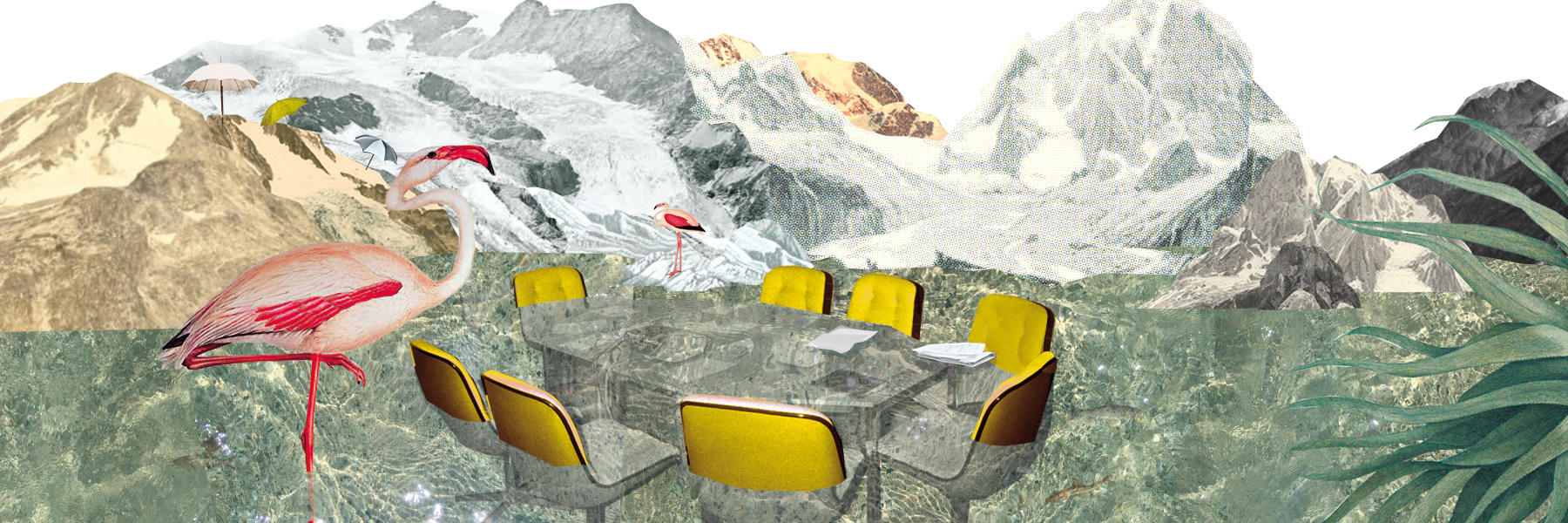
Switzerland risks seeing another record glacier melt in 2023, says glaciologist

The year 2023 looks set to be another bad one for Swiss glaciers, with snow cover around 30% below the average of the last ten years.
The situation for Swiss glaciers is critical for the second year in a row, Matthias Huss, the head of Glacier Monitoring Switzerland (GLAMOS), told the SonntagsZeitung newspaper.
Each April GLAMOS measures snow cover on roughly 15 glaciers. This year the team carried out measurements at an altitude higher than 4,000 metres for the first time – on the Strahlhorn in canton Valais. There, persistent winds blew all the snow off the ice.

More
Why melting glaciers affect us all
The situation is “serious for glaciers when, even at 4,000 metres, there is no snow towards the end of winter,” the glaciologist said.
Snow cover in the glaciers is about 30% below the average of the last ten years but in some regions, the deficit is up to 50%, according to Huss.
“This year the conditions are quite similar to 2022, when we had record ice loss,” he told news agency AFP. “Once again we have very little snow. It’s not as dramatic in all the regions as it was in 2022, but we are still strongly under the average.”
+ For Swiss glaciers, 2022 was a ‘disastrous’ year
“This tells us that the preconditions for the coming summer are bad at the moment,” he added. “But we can’t say if we will have record melting again this summer.” It will all depend on the temperatures to come.
‘A symbol of climate change’
Snow cover is important for glaciers because it both “feeds” the glaciers and offers them a protective layer in the summer months.
According to the United Nations World Meteorological Organization (WMO), the last eight years have been the warmest observed. In 2022 Alpine glaciers broke records for melting due to a combination of low winter snow cover, the arrival of Saharan dust in March, and heat waves between May and early September.
Swiss glaciers lost about 6% of their ice volume between 2021 and 2022, compared to one-third between 2001 and 2022.
The disappearance of glaciers is a “symbol of climate change,” according to Huss, who supports the callExternal link for a new federal law on climate protection set to go before voters in June.
“If we manage to limit global warming to 1.5°C or 2°C,” he said, “we can still save about a third of the volume of the Alpine glaciers.”

In compliance with the JTI standards
More: SWI swissinfo.ch certified by the Journalism Trust Initiative






























You can find an overview of ongoing debates with our journalists here . Please join us!
If you want to start a conversation about a topic raised in this article or want to report factual errors, email us at english@swissinfo.ch.